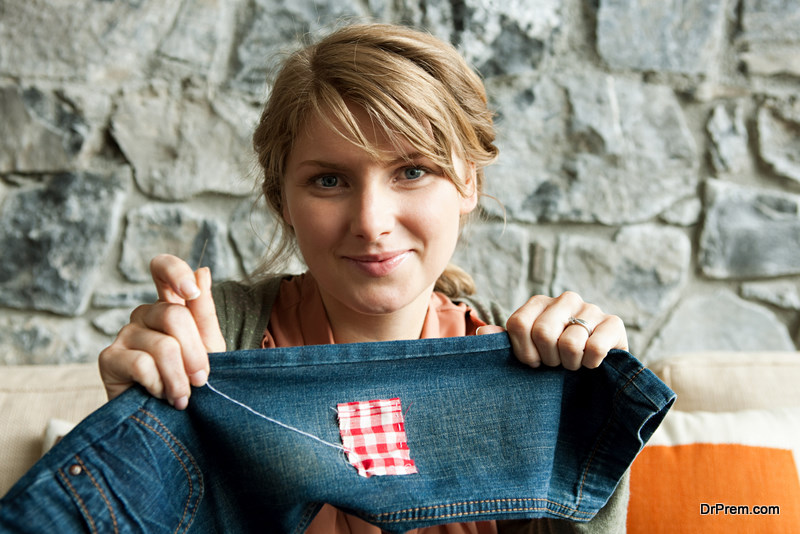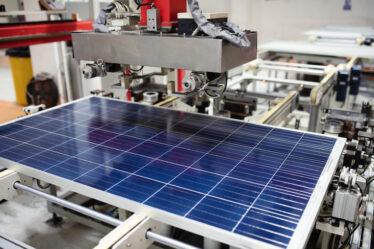
It is more important than ever for all of us to become more self-sufficient and be proactive in protecting our planet. We are becoming more aware that this planet has a limited amount of resources. We also are seeing the results of the pollution of our waters and air. Our land is being damaged by chemicals that eventually leach into the water. More and more landfills are dotting our landscape. The good news? We can all do our part to reverse these effects—whether it’s recycling or even growing your own garden with organic seeds. If each of us makes one change, the cumulative effect would be significant.
The best part is that, in addition to improving the health of the planet and ourselves, most of these changes will save us money. Not just keeping your utility costs or taxes from going up, which is great, but actually money you can put in your pocket and use. So here are some ideas to consider for your family.
1. Start a Garden
 The more food you can grow yourself, the better. A package of vegetable seeds costs less than $3. If you grow one head of broccoli, you have made your money back. One tomato plant in a pot on your back porch will do the same. Grow a garden and you will easily save hundreds of dollars from your food budget.
The more food you can grow yourself, the better. A package of vegetable seeds costs less than $3. If you grow one head of broccoli, you have made your money back. One tomato plant in a pot on your back porch will do the same. Grow a garden and you will easily save hundreds of dollars from your food budget.
2. Learn to can or freeze
If you have the ability to process food to use throughout the year, you can grow an even larger garden. If that isn’t possible, take advantage of sales on fruits and vegetables or find a “pick your own” farm or orchard. The fruits are offered at a lower price if you are willing to pick them yourself. The ability to can or freeze will allow you to preserve this bounty for later use.
3. Grow an herb garden
 Herbs are expensive. Grow an herb garden or even plant herb seeds into your flower beds. Besides using the herbs fresh, many are easy to dry and use throughout the year.
Herbs are expensive. Grow an herb garden or even plant herb seeds into your flower beds. Besides using the herbs fresh, many are easy to dry and use throughout the year.
4. Eliminate bottled water
Besides the difficulty of recycling the single-use plastic bottles (many recycling centers have stopped accepting plastic bottles), the cost of these adds up. Instead, invest in a water filter system for your home and carry your water in a reusable drinking bottle.
5. Make or purchase reusable grocery bags
 Keep your bags in the car so you always have them with you. By using your own bags, you eliminate the need to dispose of the used plastic bags the store provides. Some stores have started charging 10 cents for each of those bags. You also can purchase bags for your fresh produce. Instead of the thin plastic bags that the store provides, these bags are mesh or lightweight breathable cotton. They are washable and reusable.
Keep your bags in the car so you always have them with you. By using your own bags, you eliminate the need to dispose of the used plastic bags the store provides. Some stores have started charging 10 cents for each of those bags. You also can purchase bags for your fresh produce. Instead of the thin plastic bags that the store provides, these bags are mesh or lightweight breathable cotton. They are washable and reusable.
6. Make food from scratch
By eliminating take-out food, processed food and deli food, it is estimated that the average family can save thousands of dollars each year! The food you make will be healthier for your family, and there will be minimal waste from packaging material.
7. Repair your clothes

Learn some basic sewing skills so you can replace a button and resew an open seam. Find a good tailor or seamstress for larger jobs like replacing a zipper or alterations. Have the soles or heels of your shoes replaced rather than throwing them away.
8. Make compost
If you started your garden with organic seeds and want to grow organically, a compost pile is really necessary. Instead of disposing of the grass clippings, plant debris and other organic material including kitchen scraps, add them all to your compost. All the organic material will decompose into rich, nutrient-filled soil that can be added to your gardens, pots and containers. Besides keeping this material out of the landfills, you can eliminate the need for chemical fertilizers–saving you money each year.
9. Replace paper towels

By using reusable dishcloths and cloth cleaning rags, you can eliminate the need for paper towels. Repurpose old t-shirts to use for dusting or wiping up spills to save even more. An old sock pulled over your hand also works, especially for things like blinds.
10. Keep energy costs down
Really commit to turning lights off when you leave the room. If you raise the temperature one degree for air conditioning and lower it one degree for heating, you might not even notice, but the savings can be significant. Simple things like keeping the filter clean and shaking out the clothes before you put them in the dryer can greatly reduce the time it takes to dry your clothes, saving energy.
11. Make your own cleaning solutions
 A simple solution of vinegar and water is great, especially on windows and mirrors. Baking soda is a good cleaning agent. There are lots of cleaning agents that can be made out of normal household ingredients that will save money and keep dangerous chemicals out of your home.
A simple solution of vinegar and water is great, especially on windows and mirrors. Baking soda is a good cleaning agent. There are lots of cleaning agents that can be made out of normal household ingredients that will save money and keep dangerous chemicals out of your home.
12. Shop in bulk
You will always save money when you buy in bulk sizes. If you have the storage space, the savings from buying large quantities of staples will give you food security as well.
13. Replace paper napkins with cloth
 You can purchase cloth napkins at the dollar store or make your own. Purchase fabric and cut to the size you prefer. Simply hem the sides with your sewing machine or by hand. Eliminate waste and save money with reusable napkins.
You can purchase cloth napkins at the dollar store or make your own. Purchase fabric and cut to the size you prefer. Simply hem the sides with your sewing machine or by hand. Eliminate waste and save money with reusable napkins.
14. Buy used instead of new
Before you make any purchase of furniture or clothing, check out the resale shops first. Each shop has its own personality and quality of items available for resale. Try different places and you will find the right one to go to, depending on what you need.
15. Walk or bike
 Save money and resources by using alternative transportation whenever possible. Combine trips whenever possible.
Save money and resources by using alternative transportation whenever possible. Combine trips whenever possible.
If you can make one or two of these changes in your lifestyle, you will make an impact on the environment and our earth’s health. If you can make several changes, you are on your way to a more self-sufficient and sustainable lifestyle and you will save money in the process.
Article Submitted By Community Writer


